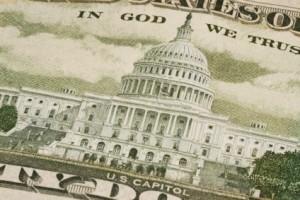 Membership Has Its Rank & Privileges
Membership Has Its Rank & Privileges
According to a recent 60 Minutes broadcast, “members of Congress can legally make trades on non-public information they obtain during their official duties.” No rush to term-limits in this club.
Poetically, STOCK (Stop Trading on Congressional Knowledge) was recently passed in the House by a 417-2 vote. Insider trading has been operational since the early 1600s (www.insidertrading.procon.org). Yes four hundred years ago. In the 1950s, Congress began to clamp down on financial misconduct by government officials. The scandals, beginning in 2000, have brought the issue to a head; hence STOCK was passed in force.
President Obama signed legislation on April 4, 2012 which prohibits members of Congress and thousands (yes thousands) of other federal workers from engaging in insider trading. The gravy train has been derailed!
Main Street has essentially been unaware of, for centuries, heretofore government sanctioned insider trading. Quite the job perk. Quite the paradox. This systemic lack of virtue has haunted the American political-economic system for hundreds of years. How can faith and confidence be sustained in a system which is so inherently flawed?
Psychological Fallout
On a psychological level, the net result is simultaneously corrosive and erosive. Righteous beliefs and moral convictions are critical components of any government’s strength and infra-structure. This is a psychological fact of life. Throughout history (perhaps beginning with the Spartans at Thermopylae) people (especially young people who make up Armies) have been willing to die for ideas. At this juncture, will people sacrifice their lives for profit? I think not.
Indeed, STOCK was, at last, a breath of clean, fresh air.
Shareholder Perspectives
Shareholders are rightfully hypersensitive to insider trading. It devalues the companies they co-own and places them in jeopardy. It’s a risk management nightmare.
Fiduciary responsibility is a serious construct in corporate governance. The term “fiduciary” is derived from the Latin term for “faith” or “trust.” A fiduciary is a person (or a company) that has a responsibility of care for assets.
Shareholders have inherent, inalienable rights, and are entitled to proper stewardship of the companies they co-own. So is management, so are company employees. This is not an idealistic pipe-dream, or fantasy trip. When corporations honor these issues, their business thrives. The incestuous power of insider trading can only corrupt and erode shareholder confidence and ultimately bring a company (or a government) down.
To contact Christopher Bayer directly, please email Christopher.Bayer@TheShareholderActivist.com.








